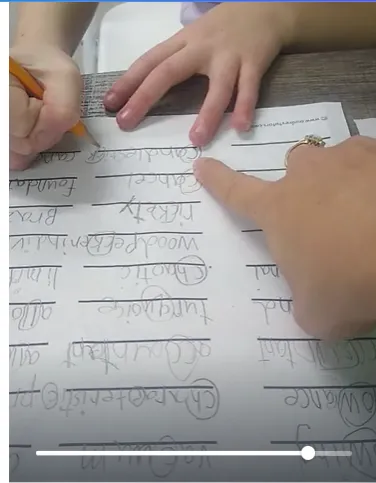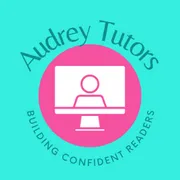My Latest Articles

The Hidden Power of Daily Word Sorts: Helping Your Child Break Through Reading Barriers
Introduction
What if helping your child become a confident reader didn’t mean rushing through levels or memorizing rules—but instead slowing down just enough to notice how words really work?
In my sessions, I often start with just 10–15 minutes of targeted word work, helping a learner connect sounds to spellings, recognize patterns, and strengthen decoding. After that, we dive into rich, meaningful reading—discussing ideas, tackling new vocabulary, and connecting what we’re learning to the real world.
This blend of foundational skill practice and authentic text exploration is where growth happens. It's not about checking off boxes. It's about building readers who understand how language works and enjoy using it.

Why Targeted Word Work Still Matters
Reading lots of books is essential—but it isn’t always enough. A child may come across a spelling pattern dozens of times and still not truly grasp it. Why?
Because without intentional focus, they may not see it clearly. They may not have something to compare it to, or the opportunity to slow down and notice what that spelling is doing in the word.
That’s what targeted word work provides: a chance to zoom in, think about the code, and make connections that stick. It supports automaticity—not by rote memorization, but through repeated, meaningful exposure.
But that doesn’t mean a child should stay stuck in decodable readers or held back until they've “mastered” every concept. Mastery of key elements is important, yes—but not according to an outside timeline.
Instead, let’s focus on what the child needs right now. Some kids will move quickly. Others need more time. All deserve access to high-quality, interesting reading experiences and strategic support with the code.
Use Word Work to Launch Into Deeper Reading
A strong reading routine doesn’t start or stop with one activity. It’s about building bridges—connecting skill-building to meaning-making.
After a short word sort or sound-focused activity, invite your child to dive into a real book—something engaging, content-rich, and just challenging enough. Reading is where they start to see what they’ve been learning in context.
And here’s a powerful way to extend that learning.
Track Words During Reading on a Sort-It Page
As your child reads, encourage them to record any words they encounter that match the patterns or sounds they've been practicing.
Whether it’s a multisyllabic word, a spelling they've seen before, or a brand-new word that puzzles them—jotting it down gives them ownership. You can then go back and sort, reread, or discuss those words.
This simple act of noticing and collecting strengthens memory, vocabulary, and awareness—and transforms passive reading into an active, brain-growing process.
What Makes Word Work So Effective?
When done well, word work is:
Short and focused
Explicit but flexible
Designed to reveal patterns and build confidence
It helps children:
Connect speech to print
Become more flexible when decoding unfamiliar words
Expand their vocabulary through structured exposure
Strengthen spelling and handwriting through repeated practice
And the best part? It doesn’t have to take all day. Ten intentional minutes, combined with meaningful reading time, can make a huge impact.
Ready to Try It?
If this sounds like what your child needs, I’ve created a full set of daily word sorts that follow this exact format. Each sort targets a different sound or spelling pattern—giving your child the chance to read, write, and analyze words at just the right level.
They’re flexible, easy to implement, and designed to grow with your learner.
You can grab individual word sorts based on the sound your child needs most—or save time and money by bundling the full set. You’ll even get a bonus Long O Fishing Game to reinforce learning through play!
👉 Explore the Word Sort Bundle
👉 Or start with the sound your learner is ready for next.
Final Thought: Build What Your Learner Needs
Every child’s journey with reading is unique. Some need time to solidify the basics. Others need to be challenged just beyond their comfort zone. Most need a bit of both.
There’s no single right path—but there is a powerful combination:
💡 Clear, focused word work
📚 Rich, authentic reading
🗣 Meaningful conversations about language
Together, they build readers who are equipped, curious, and ready to learn.
If you’re looking for a way to support your reader in a practical, flexible way, I hope this gives you a clear place to start.
Let me know if you try it—I love hearing what’s working for your family.

Every child can grow
into a confident reader—
with
the right support and a
little bit of hope.
Newsletter
Be part of a community that believes every learner can grow and thrive. Get access to exclusive tips, tools, and encouragement delivered right to your inbox. Subscribe today and let’s build strong readers and writers together!
